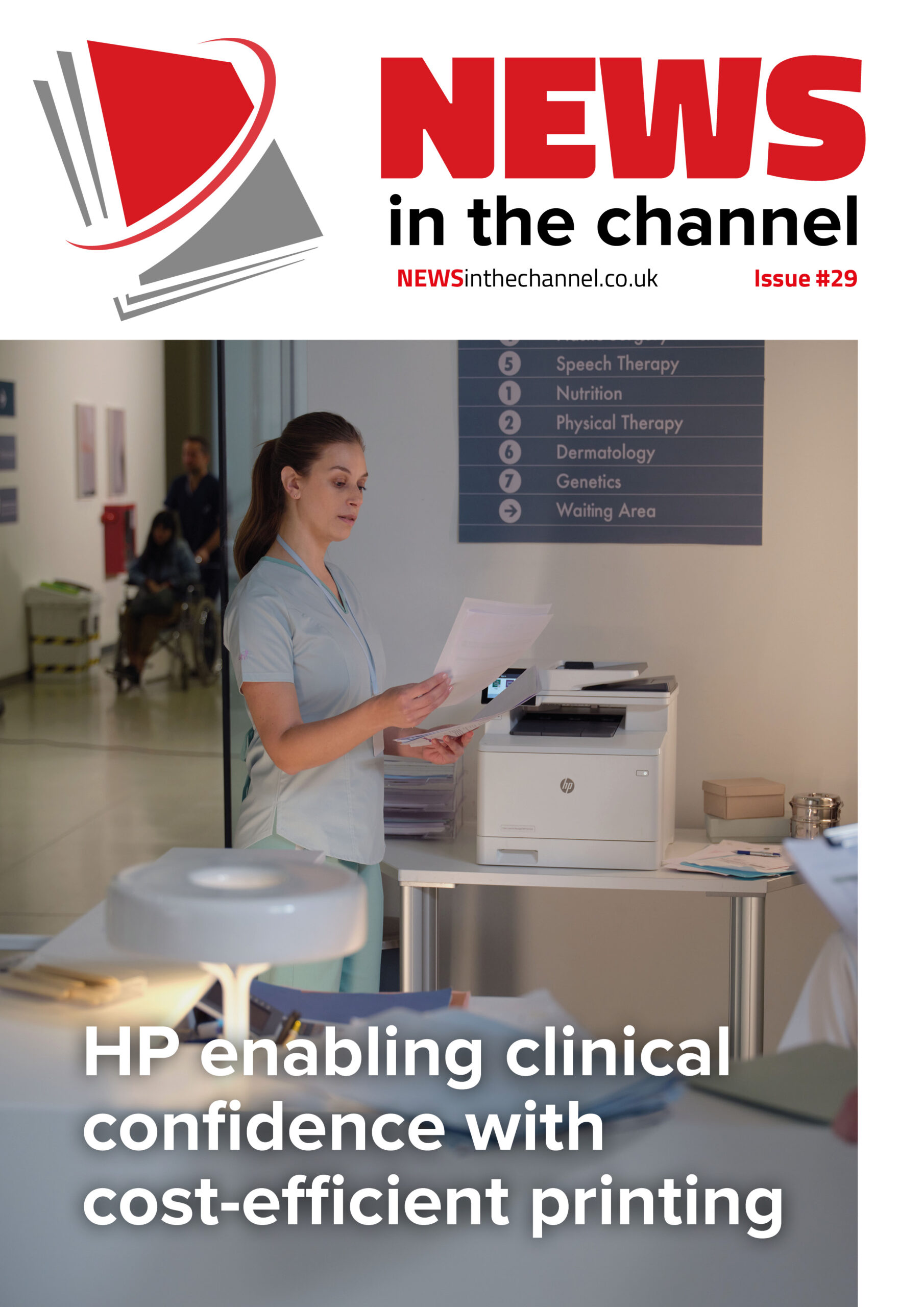The healthcare sector generates a huge amount of data, and many organisations within it are waking up to the power of it to bring efficiencies and patient benefits – but they need the right data management solutions to do that effectively.
The UK healthcare sector is huge, employing approaching two million people and expenditure on it runs to hundreds of billions of pounds. It also generates an ever-increasing amount of data, especially as the sector continues to digitalise and harness artificial intelligence (AI) tools.
This data needs to be managed effectively, especially if it is to deliver the outcomes that healthcare organisations seek to become more efficient and provide better services to patients.
“Tools like Digital Health Records can play a vital role in this, helping to streamline operations, support smarter decision-making and integrate patient data from various sources,” says Oz Olivo, VP of product management for Inrupt. “As we move further into the AI era, these data-driven approaches will be key to improving care, boosting productivity and making the healthcare system more sustainable for the future.”
Enabling better treatment
Becky Stables, head of marketing at Catalyst BI, adds that data management solutions can help medical professionals make informed decision-making when treating patients and can improve patient care, allowing treatment to be tailored effectively to meet patient needs.
“Accurate and well-managed data enables medical professionals to identify trends and patterns, facilitating comparisons, evaluations and predictions about future developments in the healthcare sector,” she says.
It can also improve patient care. “Healthcare must prioritise patient wellbeing and data management plays a crucial role in improving the quality of care and making sure treatment is comprehensive and effective,” Becky says. “Data management enables healthcare providers to gain access to essential information quickly, enabling prompt diagnosis and treatment during medical emergencies.”
In addition, robust data management results in high-quality data, which drives better decision-making on an organisation and national level, she adds. “Healthcare systems can leverage several benefits including being able to conduct patient-centric analyses to help tailor treatment and improve focus in the organisation to consistently improve overall patient care.”
Becky adds that there are other ways in which effective data management can help. For instance, it reduces operational costs by preventing overspending on internal data systems and hardware. “This can be done by adopting cloud-based platforms and comprehensive tools like Health Contracts International,” she says.
“Data management enables organisations to make informed decisions, shape policies and offer services that meet the population’s healthcare needs. Quality data allows leaders to strategically balance financial margins with resource allocation, driving business decisions based on accurate analytics.
“Operational efficiency is a pressing need and a regular issue in healthcare, and this can be resolved through data management. Data management promotes a more streamlined and effective business process that can health scale healthcare services and supplies, allowing healthcare providers to optimise resources and improve profitability.”
Power of data
Danny Sandwell, senior solutions manager at Quest Software, says that healthcare organisations are waking up to the fact their data is a goldmine for improving patient outcomes, streamlining operations and driving innovation. “By leveraging advanced data management tools, healthcare providers can unlock insights that lead to more personalised patient care, predictive health management and more efficient use of resources,” he says.
“Moreover, the ability to harness data effectively can also fuel research and development, opening new avenues for medical advancements. This growing awareness is pushing the sector to understand the fact that data management solutions are no longer optional they’re essential for ensuring that healthcare data is governed, secure, compliant, and, most importantly, understood, accessible, and efficiently and effectively usable for critical decision-making.”
Patrick Spencer, VP, Kiteworks, agrees: “With the growing emphasis on digital transformation, healthcare providers recognise that data is not just a byproduct of their operations but a critical asset that can drive better patient outcomes, enhance operational efficiency, and support research and innovation,” he says.
“There is also an understanding that effective data management can help mitigate risks associated with data breaches and compliance issues, particularly given the sensitive nature of health-related information. As a result, many healthcare organisations are investing in advanced data analytics, security measures, and robust data governance frameworks to maximise the value of their data while ensuring its privacy and security.”
Crucial solutions
Therefore, it is crucial for healthcare organisations to adopt data management solutions, Patrick adds. “These solutions help manage vast amounts of sensitive information, including patient records, medical histories, and treatment plans, ensuring data integrity, accuracy and accessibility,” he says.
“Effective data management is vital for maintaining patient trust and complying with strict regulatory requirements like GDPR and HIPAA.”
David Malan, sales director, UK & Ireland at DocuWare, agrees. “These solutions provide essential and compliant tools and processes for healthcare organisations to organise and safeguard patient data, enhance operational efficiency, gain valuable insights and comply with strict data privacy and security regulations,” he says.
“Healthcare providers can prioritise patient care by ensuring that patient information is accessible, accurate and protected. Through document management solutions, these organisations can streamline workflows, automate tasks and reduce manual processes to help save time and money.”
Trends
As healthcare organisations become increasingly data centric, the demands they have for data management solutions change too.
“There is a growing demand for data management tools that facilitate seamless integration and interoperability across different systems and platforms, enabling a more holistic view of patient care,” says Patrick. “Healthcare customers are also looking for solutions that offer advanced analytics capabilities, allowing them to derive actionable insights from their data to improve patient outcomes and operational efficiency. Usability and scalability are also key, as organisations seek flexible solutions that can adapt to their evolving needs and support future growth.”
David notes that healthcare customers are increasingly seeking solutions that are scalable, interoperable, secure, user-friendly and either hybrid or cloud-based. “Scalable solutions can handle increasing workloads as the volume of data continues to grow, while interoperable solutions can seamlessly integrate with existing systems,” he says. “Robust security features are essential to protect patient data from unauthorised access and user-friendly interfaces make it easy for even non-technical staff to use the solutions. Healthcare organisations need solutions that offer scalability, flexibility and cost-effectiveness.”
Oz adds that due to the sensitivity of personal health data and regulatory restrictions, healthcare customers are increasingly seeking data management solutions that give them more control over their personal health data. “They want secure platforms that allow them to manage consent and remain involved in decisions about data usage,” he says. “They want personalised care that prioritises their needs as an individual as opposed to being another number in a docket. The push for personal Digital Health Records reflects a trend towards greater transparency, control and patient-centric care. The shift to digital tools, such as for administering patient-satisfaction questionnaires, further enhances convenience and trust in data-driven healthcare services.”
Danny says that healthcare customers are increasingly looking for sustainable strategies and solutions that meet certain requirements. For instance, it requires seamless integration between different healthcare systems and devices to enable a holistic view of patient data.
He adds that solutions should also be scalable. “Solutions that can handle growing volumes of data as healthcare organisations continue to digitise and connect more devices,” he says.
Danny adds that AI is also becoming increasingly popular, such as advanced analytics and AI-driven insights to support predictive healthcare, personalised treatment plans and operational efficiency.
Security concerns
Security is also paramount in data management solutions, says Steve Haines, chief commercial officer at Embridge Consulting. “A key consideration is who can access what data and controls within systems to manage this down to data level,” he says. “Being aware of and carefully managing the data you have and are working with, for example, ‘organisational data’ as opposed to ‘patient data’, who it’s being accessed for and for what purpose.
“Organisational data can help inform decision making from a management perspective as opposed to patient data being used to inform decision making on a patient-related matter. Of course, GDPR is of a central concern for anything that is patient orientated, especially regarding who has the right to access that data and for what purpose.
“One key benefit with cloud is the confidence in data security that it offers. Security and managing GDPR requirements can be a minefield for many health organisations and the cloud can simplify this landscape. It’s important that teams overseeing organisation data protection are engaged early on as key stakeholders on any tech implementation project, whether of a data management system or any line of business system implementation, such as ERP that may be utilised for private patient billing.
“Data has the power to inform decision making. The NHS is increasingly data rich, but often remains ‘information poor’. It’s about getting good quality data in the form of information to decision makers in a timely manner to help with informed decision making and providing the right intelligence to inform this decision making.”
Secure document management
Kevin Dobson, product manager for scan at Epson, adds that there is growing demand for secure document management in the healthcare sector. “The NHS, for instance, remains heavily reliant on paper processes, which has its fair share of challenges due to the sensitive nature of patient information and the shift towards hybrid work models,” he says. “Moving towards digitisation can address these challenges, making data management solutions crucial for the sector.
“We’ve also seen recent government initiatives like the UK’s ‘Cloud First’ strategy pushing healthcare organisations to adopt secure and compliant data management solutions, ensuring they meet public sector requirements and future-proof their operations.
“Secure document management is essential for maintaining confidentiality, preventing data breaches and ensuring compliance with regulations such as GDPR. Therefore, technologies such as secure document signing and transfer are key for being able to confirm authenticity and safely exchange data among authorised individuals, across different work settings.
“Efficiency and patient safety are further key reasons why data management solutions are so important for healthcare organisations. Digitising records secures confidential material and streamlines workflows, both of which are important in healthcare where accurate data management could directly impact patient care.”
Reseller conversations
With such a complex sector, resellers have a vital role to play to ensure healthcare organisations get the right data management solutions in place. Patrick says that resellers should focus on several key points when discussing data management solutions with customers. “First, they should emphasise the importance of robust security and compliance features, highlighting how their solutions can help protect sensitive patient data and meet regulatory requirements like GDPR and HIPAA,” he says.
“They should also discuss the benefits of interoperability, showcasing how their solutions can seamlessly integrate with existing systems, enabling a unified approach to patient care and data management.
“Resellers should also highlight the advanced analytics capabilities of their solutions, demonstrating how healthcare organisations can leverage data insights to improve patient outcomes and streamline operations. It’s also important to mention scalability and flexibility, ensuring customers that the solutions can grow and adapt to their evolving needs. Finally, resellers should focus on ease of use and support services, reassuring customers that the transition to new data management solutions will be smooth and well-supported.”
David says that resellers should highlight how solutions can contribute to enhancing the quality and efficiency of care, streamline operations and reduce expenses, safeguard patient data, assist in adhering to regulations and generate a return on investment.
Danny adds that resellers should focus on how their solutions can provide robust security as well as integration and inter-operability, and offer the scalability and intelligence needed to sustainably handle the growing data demands in healthcare.
Keep it straightforward
Data will become increasingly important in healthcare in the future. “As the sector continues to digitise, the volume of health data generated from electronic health records, wearable devices, and telemedicine will grow significantly,” says Patrick. “This data is essential for improving patient care, enhancing clinical decision-making and driving research and innovation. As the reliance on data expands, so does the need to manage it effectively.
“Keeping data management solutions straightforward is crucial for several reasons. Simplicity ensures that healthcare professionals can quickly adopt and use the solutions without extensive training, reducing the risk of errors and inefficiencies. Straightforward solutions also make it easier to maintain compliance with complex regulatory standards and adapt to changing requirements. Moreover, user-friendly tools promote better data governance and security practices, helping to protect sensitive patient information.”
David agrees that it is essential that solutions remain straightforward and easy to use. “Complex ones can be difficult to adopt and maintain, hindering their effectiveness,” he says.
Oz adds that patients have varying preferences regarding data management – some may want full control, others may prefer minimal involvement, and some may delegate the decision making to someone else entirely. “Therefore, the success of data management solutions will depend on balancing advanced functionality with user-friendly design,” he says. “Simplifying these systems will not only improve patient experience but also ensure that the benefits of digital health data are fully realised without repeating past mistakes.”
Danny says that simplicity ensures that healthcare professionals can leverage data without getting bogged down by complexity and adaptability. “It ensures that their data capabilities will support what needs to be a dynamic and fast paced business strategy,” he says.











